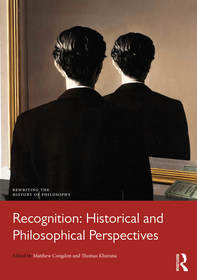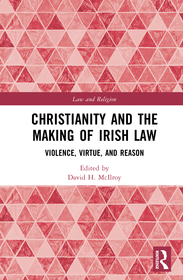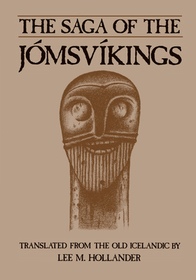
Recognition: Historical and Philosophical Perspectives
Series: Rewriting the History of Philosophy;
- Publisher's listprice GBP 230.00
-
109 882 Ft (104 650 Ft + 5% VAT)
The price is estimated because at the time of ordering we do not know what conversion rates will apply to HUF / product currency when the book arrives. In case HUF is weaker, the price increases slightly, in case HUF is stronger, the price goes lower slightly.
- Discount 10% (cc. 10 988 Ft off)
- Discounted price 98 894 Ft (94 185 Ft + 5% VAT)
Subcribe now and take benefit of a favourable price.
Subscribe
109 882 Ft

Availability
Not yet published.
Why don't you give exact delivery time?
Delivery time is estimated on our previous experiences. We give estimations only, because we order from outside Hungary, and the delivery time mainly depends on how quickly the publisher supplies the book. Faster or slower deliveries both happen, but we do our best to supply as quickly as possible.
Product details:
- Edition number 1
- Publisher Routledge
- Date of Publication 12 December 2025
- ISBN 9781032304915
- Binding Hardback
- No. of pages438 pages
- Size 246x174 mm
- Weight 453 g
- Language English
- Illustrations 4 Illustrations, black & white; 4 Halftones, black & white 700
Categories
Short description:
This volume explores the philosophy of recognition from multiple standpoints, providing a wide-ranging reassessment of the concept. It is vital reading for those in philosophy as well as related disciplines such as political theory, sociology, social psychology and psychoanalysis.
MoreLong description:
The concept of recognition has moved to the forefront of philosophical research in recent decades, particularly in political and social philosophy, but also related areas, including philosophy of race and gender, philosophy of mind and language, ethics and aesthetics. It is a concept with deep roots from at least Rousseau and Hegel to contemporary social theory.
In this outstanding volume, an international roster of contributors expands our perspective on recognition beyond the standard story, providing a thought-provoking reassessment of the concept and its history. The twenty-eight chapters explore the full scope of recognition in four sections:
- Aesthetic recognition; including chapters on Kant, Simmel, Murdoch, and the relationship between recognition, art, and film, including Boorman's Deliverance and the Dardennes brothers’ Rosetta
- Recognition in philosophy of mind and language; including chapters on mind-reading, psychoanalysis, the logic and language of recognition, and its relation to epistemic agency
- The ethics of recognition; including chapters on Homer, Plato, classical yoga, F. Schlegel, Beauvoir, the Anthropocene, and recognition in the ethics of cognitive disability
- The social and political philosophy of recognition; including chapters on property and gift-giving, Hegel’s aftermath, slavery and liberation, colonialism, Arendt, and alterity.
With a lucid introduction by the editors detailing the standard story of recognition and what lies beyond, Recognition: Historical and Philosophical Perspectives provides an authoritative and multi-faceted exploration of this fascinating concept, expanding its relevance considerably. It is essential reading for those in philosophy as well as related disciplines such as political theory, sociology, social psychology, and psychoanalysis.
'Since path-breaking work on the theme in the 1990’s and early 2000’s, recognition theory has developed into a major research approach, perhaps even paradigm, in philosophy and related disciplines. Certain limiting assumptions about recognition are widely associated with this approach—assumptions concerning the history of the idea, the legitimate areas of application of the approach, the paradigmatic structure of recognition-relations, and their possible relata. This superb collection of new essays shakes these associations and paves way for understanding recognition as having a much wider significance than often thought—universally human and perhaps even crossing the boundary between the human and the non-human. It is essential reading for anyone interested in the theme of recognition.' - Heikki Ikäheimo, University of New South Wales, Australia
MoreTable of Contents:
Acknowledgements Notes on Contributors Philosophies of Recognition: An Introduction Matthew Congdon and Thomas Khurana Part 1: Aesthetics 1. Aesthetic Recognition: A Kantian Model Samantha Matherne 2. Three Models of Aesthetic Recognition Jörg Schaub 3. Playing Society: Simmel’s “Sociability” and the Idea for an Aesthetic Species of Recognition Barbara Carnevali 4. A Recognitive Bond without Terms: The Concept of Aesthetic Action Florian Klinger 5. Recognizing Others Through Art Scott Shushan 6. Recognition and Deliverance Andrew Norris 7. Failed Recognition in the Dardennes’ Rosetta: Hegelian Implications Robert B. Pippin Part 2: Mind, Language, and Knowledge 8. Recognition versus Mind-Reading in Philosophy of Mind and Language Richard Moran 9. Recognition in Theory: Psychoanalytic Theory and the Epistemology of Recognition Francey Russell 10. Acknowledgment Is Not Recognition: On the Perlocutionary Dimension of Our Normative Practices Daniele Lorenzini 11. From Interacting Substances to Recognizing People: On the Logical Foundations of Hegel’s Theory of Recognition Andrew Werner 12. Recognition and Intellectual Self-Trust Nadja El Kassar 13. Homeplace: Recognition-giving Practices and Epistemic Agency in Communal Spaces Hilkje C. Hänel Part 3: Ethics 14. Ancient Greek Recognition? Homer, Plato, and the Struggle for Honor Jonathan Fine 15. Recognition of the Will Wayne Martin 16. Persons, Animals, and Recognition: A Classical Yoga Perspective Owen Ware 17. A Romance of Recognition: Nature, Gender and Sex(ism) in Friedrich Schlegel Federica Gregoratto 18. Unveiling Existential Ambiguity: The Role of Recognition in Simone de Beauvoir's Philosophy Manon Garcia 19. From Ecocide to Nature’s Right: Recognition in the Anthropocene Jay Bernstein 20. Moral Invisibility and Institutional Care Vanessa Carbonell Part 4: Social and Political Philosophy 21. Kant’s Theory of Property as a Theory of Mutual Recognition Rafeeq Hasan 22. Recognition in a Form of Life Terry Pinkard 23. G.W.F. Hegel, Frantz Fanon, and Angela Davis on Recognition, Slavery, and Liberation Daniel James and Franz Knappik 24. Five Notes on Counter-Recognition Daniel Loick 25. Metamorphosis of Value: Epistemic Protocols in the Racial Longue Durée Rocío Zambrana 26. Arendt’s Philosophy of Appearance and the Ambivalences of Recognition Sophie Loidolt 27. The Power of the Third: Recognition and Gift-Giving Dirk Quadflieg 28. Equality, Interpellation, Liberation: Three Vectors of Recognition Christoph Menke (translated by Jacob Blumenfeld). Index
More








